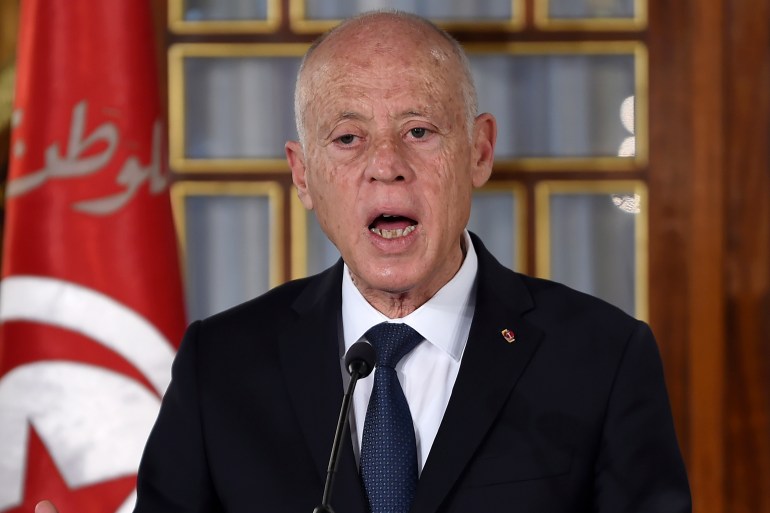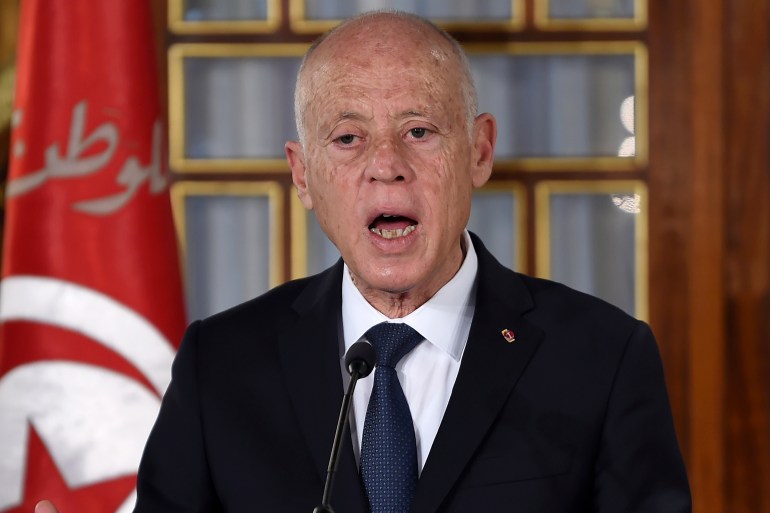Mraihi joins a growing list of President Saied’s political opponents who are in jail or facing prosecution.
The head of Tunisia’s Republican Union Party, Lotfi Mraihi, who has announced his intention to run in a presidential election set for October, has been arrested on suspicion of money laundering.
According to politicians and local media reports, the arrest took place on Wednesday in Nabeul province in northeastern Tunisia.
A Tunis court spokesman said earlier this week that Mraihi, one of President Kais Saied’s most prominent critics, faces charges of money laundering and opening bank accounts abroad without a licence from the central bank.
Mraihi’s arrest comes as opposition parties, many of whose leaders are in prison, accused Saied’s government of exerting pressure on the judiciary to track down Saied’s rivals in the upcoming election and pave the way for him to win a second term.
Elected president in 2019, Saied has not officially announced his candidacy for the election, which is set for October 6, but he is widely expected to seek a second term. He said last year that he would not hand power to what he called nonpatriots.

Abir Moussi, the leader of the Free Constitutional Party and a prominent candidate, has been in prison since last year on charges of harming public security.
Moussi’s party said she was imprisoned to remove her from the presidential race, a claim denied by the authorities.
Other candidates – including Safi Saeed, Nizar Chaari and Abd Ellatif Mekki – are facing prosecution on charges such as fraud and money laundering.
Mondher Znaidi, a prominent potential candidate who is living in France, is also facing prosecution on suspicion of corruption.
The opposition says fair and credible elections cannot be held unless imprisoned politicians are released and the media are allowed to work without pressure from the government.
In 2021, Saied seized almost all powers, dissolved parliament and began ruling by decree, a move that the opposition describes as a coup.
He oversaw the writing of a new constitution, approved by referendum in 2022, which established a presidential system and weakened parliament.
Saied said his steps were legal and necessary to end years of rampant corruption among the political elite.
Prominent opponents of the president have been detained since last year on charges of conspiring against state security in a crackdown that included businessmen, media figures and politicians.
EMEA Tribune is not involved in this news article, it is taken from our partners and or from the News Agencies. Copyright and Credit go to the News Agencies, email news@emeatribune.com Follow our WhatsApp verified Channel





